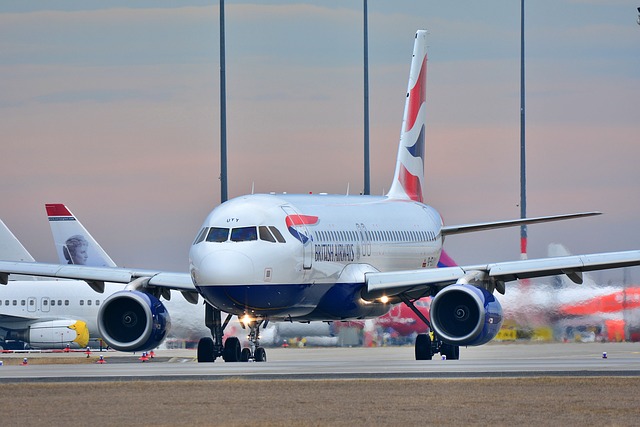Unlocking Aviation Career Pathways in Germany Through English
In Germany, a significant number of individuals may not realize the potential within the aviation sector. Proficiency in English can serve as a key asset, facilitating entry into various roles in this expanding field. A detailed understanding of the sector’s dynamics, requirements, and opportunities may provide valuable insights for those interested in pursuing a future in aviation.

The German aviation industry represents a significant sector within the country’s economy, employing thousands of workers across various specializations. As a global hub for aerospace manufacturing, airline operations, and aviation services, Germany offers substantial career opportunities for qualified professionals. However, one critical skill stands out among requirements for these positions: English language proficiency. As the international language of aviation, English fluency opens doors throughout the industry, from cockpit to control tower and beyond.
Understanding the Aviation Sector in Germany and Its Growth Potential
Germany hosts one of Europe’s most robust aviation ecosystems, anchored by major players like Lufthansa Group, Fraport, and Airbus operations. The country’s strategic location in central Europe has established it as a crucial transit hub, with Frankfurt Airport alone handling over 70 million passengers annually in pre-pandemic times. Despite temporary setbacks during global disruptions, the German aviation sector has demonstrated remarkable resilience and continues on a trajectory of sustainable growth.
The industry extends beyond passenger airlines to include cargo operations, maintenance services, aircraft manufacturing, and specialized aviation support functions. The German Aerospace Center (DLR) continues to drive innovation in the field, while major investments in infrastructure and technology signal the government’s commitment to maintaining Germany’s competitive position in global aviation.
Employment opportunities span across technical roles like aircraft maintenance, engineering, and flight operations to customer-facing positions such as cabin crew and ground services. With Germany’s strong focus on sustainability, emerging roles in green aviation technologies are also creating new career pathways for qualified professionals.
The Importance of English Proficiency in Aviation Careers
English serves as the mandated international language of aviation, a standard established by the International Civil Aviation Organization (ICAO). This requirement isn’t merely a preference but a critical safety measure ensuring clear communication between pilots, air traffic controllers, and ground personnel across national and linguistic boundaries.
For pilots and air traffic controllers working in Germany, achieving ICAO Level 4 English proficiency (Operational) is the minimum requirement, with many employers preferring Level 5 (Extended) or Level 6 (Expert). These assessments evaluate pronunciation, structure, vocabulary, fluency, comprehension, and interaction abilities—all essential for clear communication in routine and emergency situations.
Beyond operational roles, English proficiency remains crucial throughout the aviation sector. Technical documentation, maintenance manuals, and international regulations are predominantly published in English. Customer service positions require English communication skills to assist the diverse international passenger base traveling through German airports. Even in administrative roles, the global nature of aviation business necessitates comfortable English usage for international correspondence and collaboration.
Roles and Conditions within the Aviation Industry
The aviation sector offers diverse career paths with varying requirements, working conditions, and compensation structures. Pilots typically undergo rigorous training programs lasting 18-24 months, often requiring private investment of €60,000-€100,000 for commercial pilot certification. Once qualified, pilots with major German carriers can expect competitive salaries, though entry-level positions often begin with regional airlines or charter operations.
Cabin crew positions remain highly competitive, with airlines like Lufthansa receiving thousands of applications for limited training slots. Successful candidates undergo intensive training in safety procedures, first aid, and customer service protocols. While offering opportunities for travel and flexible scheduling, these roles demand physical stamina, emotional resilience, and comfort with irregular working hours.
Engineering and maintenance positions typically require specialized education in aerospace or mechanical engineering, often with additional aviation-specific certifications. These technically demanding roles offer stable employment with opportunities for specialization in aircraft systems, avionics, or powerplant maintenance.
Ground operations staff, including dispatchers, ramp agents, and passenger service representatives, form the backbone of daily airport functions. While entry requirements may be less stringent than flight operations, these positions demand exceptional organizational skills, attention to detail, and the ability to perform under pressure in a time-sensitive environment.
Aviation Training Pathways in Germany
Germany offers multiple educational routes into aviation careers, each with distinct advantages. Traditional university programs at institutions like the Technical University of Munich and Hamburg University of Applied Sciences provide comprehensive aerospace engineering education. These programs combine theoretical foundations with practical applications, often featuring industry partnerships that facilitate internship opportunities and research collaborations.
Vocational training through Germany’s dual education system offers an alternative pathway, particularly for technical roles. This approach combines classroom instruction with apprenticeships at aviation companies, allowing students to earn while they learn and gain hands-on experience. Lufthansa Technik, MTU Aero Engines, and other industry leaders actively participate in these programs, often retaining successful graduates.
Specialized flight training academies like the Lufthansa Aviation Training and European Flight Academy provide focused pilot education programs. These intensive courses combine simulator training, theoretical knowledge, and actual flight hours to prepare candidates for commercial pilot certification. While expensive, many offer financing options or conditional hiring agreements with partner airlines.
English Language Requirements and Training Resources
Aviation professionals must demonstrate specific English proficiency levels depending on their roles. Pilots and controllers must meet ICAO standards through formal assessment, while other positions may require general business English competency demonstrated through tests like TOEFL, IELTS, or Cambridge English qualifications.
Numerous resources exist for aviation English development. Specialized courses like ICAO Aviation English training programs focus on operational communication, phraseology, and emergency response vocabulary. Online platforms such as Aviation English Asia and general language schools throughout Germany offer both general and aviation-specific English instruction.
Many aviation employers in Germany provide supplementary language training for promising candidates, recognizing that language skills can be developed alongside technical abilities. This investment reflects the critical importance of clear communication in maintaining the industry’s exceptional safety record.
Prices, rates, or cost estimates mentioned in this article are based on the latest available information but may change over time. Independent research is advised before making financial decisions.
Future Trends in German Aviation Careers
The aviation industry in Germany continues evolving, creating new opportunities alongside traditional roles. Sustainable aviation initiatives are generating positions in alternative fuel development, aircraft efficiency optimization, and environmental compliance. The growing drone sector requires operators, technicians, and regulatory specialists familiar with unmanned aerial systems.
Digitalization across the industry has increased demand for data analysts, software developers, and cybersecurity specialists with aviation domain knowledge. As airlines and airports implement advanced passenger management systems, artificial intelligence applications, and predictive maintenance technologies, professionals combining IT expertise with aviation understanding find themselves increasingly sought after.
These emerging fields maintain the industry’s traditional requirement for English proficiency while adding new technical vocabulary and communication contexts. Professionals who combine strong English skills with specialized technical knowledge position themselves advantageously in this evolving landscape.
The German aviation sector presents diverse opportunities for career development, with English proficiency serving as a fundamental requirement across all specializations. By understanding the industry structure, required qualifications, and available training pathways, aspiring aviation professionals can chart their course toward rewarding careers in this dynamic global industry.




